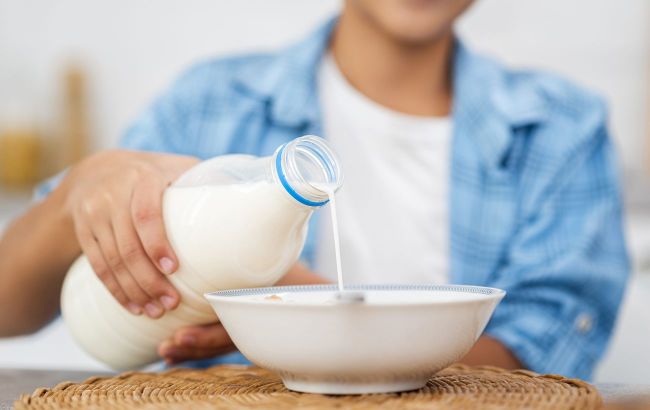Dairy vs plant milk: What nutritionists really recommend
 Ukrainians were explained why they should not give up milk because of trends (photo: Freepik)
Ukrainians were explained why they should not give up milk because of trends (photo: Freepik)
In 2025, the trend of plant milk, such as almond, soy, or banana, has become even more popular among young people. But are these drinks really healthy, and can they replace regular milk? Ukrainian professor Oleh Shvets explained why it is worth being cautious with such substitutes and how to safely consume dairy products even if you suffer from lactose intolerance.
Is plant-based milk a 'sugar bomb'?
The problem with plant-based milk is its composition, which is significantly worse than that of regular milk.
Firstly, it often contains a lot of sugar, which does not fit at all with the concept of healthy eating. Secondly, and this is key: it does not include the beneficial protein found in cow's or goat's milk.
"Plant-based milk is not good. First of all, because it is not milk, but a blend of random ingredients. It contains a lot of sugar, but it does not have the beneficial protein found in cow's or goat's milk," emphasizes the nutritionist.
The list of losses does not end there. Plant-based alternatives are deficient in several other important components, including choline, vitamin B12, potassium, and calcium.
These vitamins and minerals are critically necessary for the nervous system and bone strength, and their absence in the diet can have long-term negative consequences.
Thus, the doctor says, "plant-based alternatives are nutritionally far inferior to cow's milk and other fermented dairy products."
Lactose intolerance: Myth from social media
The hype around plant-based milk is related to concerns about lactose intolerance.
"The topic of lactose intolerance has somewhat spread through social media.
As a result, an unhealthy fuss arose around this issue. And it especially affected certain age groups, such as young people who are the most active social media users," says the doctor.
That is why young people now order coffee with almond or banana milk, assuming cow's milk is harmful. But the facts tell a different story.
According to the nutritionist, complete lactose intolerance among adults doesn't exceed 15%. In children, it is almost nonexistent. A diagnosis should not be made solely based on the results of the genetic test, which has become trendy now.
Practical advice for people who are lactose intolerant
People who genuinely have trouble digesting dairy should limit their intake at one time, but there's no need to give it up completely.
Professor Shvets gives a simple but effective piece of advice. Such people should try drinking less than a glass of milk at a time. In most cases (about 90%), this will prevent any negative symptoms. This allows them to continue receiving the necessary protein, calcium, and other micronutrients essential for a healthy diet.
Thus, the doctor concludes, there is no reason to switch to plant-based alternatives, as they are nutritionally much worse. It is better to find a safe amount of cow's or goat's milk and fermented dairy products, which have strong probiotic potential and are the foundation of a quality, healthy lifestyle.
This material is for informational purposes only and should not be used for medical diagnosis or self-treatment. Our goal is to provide readers with accurate information about symptoms, causes, and methods of detecting diseases. RBС-Ukraine is not responsible for any diagnoses that readers may make based on materials from the resource. We do not recommend self-treatment and advise consulting a doctor in case of any health concerns.

